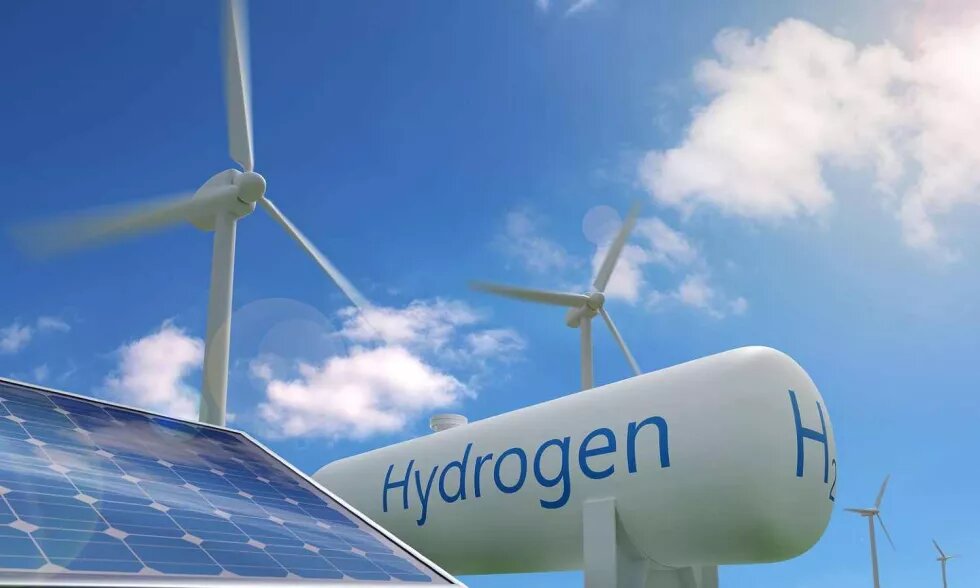Green hydrogen has gained significant international attention as a promising solution for facilitating a green and sustainable transition in the energy sector. How can Nigeria, a country highly dependent on fossil fuels, position itself as a prominent player in this emerging energy revolution? To gain valuable insights into this matter, we speak to Ifeoma Malo, Executive Director of Clean Tech Hub, on the Nigerian potential for green hydrogen production and, importantly, addressing pertinent concerns surrounding equity and social justice within the industry.

Currently, there is a lot of attention on green hydrogen production as a key instrument towards a global sustainable energy transition. Is Nigeria ready to engage in this discourse and position itself as a leader in this field?
Ifeoma Malo: While several North African and Southern African countries have started to engage intensively in green hydrogen initiatives, projects, and policymaking, Nigeria has lagged behind. Nevertheless, there are opportunities for Nigeria to catch up and be a leader in the field, at least within West Africa.
Since early 2023, there has been an explosion of dialogues, workshops, and discussions on green hydrogen in Nigeria. The country's gas distribution infrastructure, presence of several potential off-taker industries, port infrastructure, and experience with the renewable energy sector that could form the basis for an accelerated movement towards utility-scale infrastructure are factors that suggest Nigeria's potential and readiness for green hydrogen production and regional leadership. Nigeria's oil and gas industry, among the largest in Africa, could even become engaged in the green hydrogen sector after making entry into blue hydrogen.
What kind of economic and developmental opportunities exist in green hydrogen production for Nigeria?
A particularly interesting opportunity that green hydrogen production in Nigeria could bring is to support the growth of the country's utility-scale renewable energy sector. It has been difficult for large-scale solar power plants, for example, of 50 megawatts and above, to be established in Nigeria and connected to the national grid. The government's fiscal limitations make providing 'risk guarantees' quite challenging, while battles over tariffs persist. Green hydrogen production represents a major opportunity for large-scale renewable energy investments and could catalyze investment and project development in the wider sector. In light of the nation's dwindling foreign exchange earnings, investing in green hydrogen will buoy up the country's reserves and contribute positively to the nation's GDP.
Green hydrogen production represents a major opportunity for large-scale renewable energy investments
An additional opportunity is green hydrogen's potential for diversifying Nigeria's exports, which are dominated by oil exports – the revenues from which are likely to diminish over time as a result of the global energy transition. This is one of the rationales given by the German government for assisting Nigeria in developing green hydrogen export potential. Since many European nations, and others such as Japan and South Korea, lack sufficient green hydrogen production capacity and will be major importers of the energy carrier and its derivatives, such as green methanol, green ammonia, and Power-to-X products, there indeed seems to be a potential market opportunity. Besides generating export revenue and increasing investment flows, green hydrogen production has the potential to spur economic growth because it may improve the transfer of technology and human capital from foreign to domestic firms. Green hydrogen has a great deal of potential to address the world's energy needs.
What possible challenges, risks, and threats do green hydrogen production pose in Nigeria? What fundamental questions must energy policymakers at both local and international levels consider?
A major challenge in the short-to-medium term is that green hydrogen is still more expensive than blue hydrogen. According to the H2-Atlas, the Levelized Cost of green hydrogen is between $4/kg and $17.4/kg in Nigeria, compared with between $2.8 and $3.5 per kg for blue hydrogen. It, therefore, appears to be uncompetitive to deploy green hydrogen at the moment, which may be the reason why the Nigerian Energy Transition Plan sees it playing a role only after 2030.
Besides this challenge, there are social and environmental risks that need to be considered. Green hydrogen production requires vast areas of land for the wind and solar farms that feed hydrogen plants with green electricity. This increases the risk of land grabs ("green grabbing") and conflicts over clashes with other livelihood activities such as farming, especially given land tenure insecurity and other structural flaws prevalent in Nigeria.
There is also a real risk of foreign exploitation. In a situation where there is no strong domestic advocacy and strategy for the domestic use of green hydrogen, foreign interests become the determinant of the direction of national policy and interventions. Nigerian water and renewable energy resources should not be exploited for the sole purpose of exporting energy for use in Europe. Domestic industries must be developed and helped to become hydrogen-ready. This implies that an industrial policy element is necessary for Nigeria's hydrogen strategy.
What international partnerships and collaborations can Nigeria engage in to leverage knowledge, expertise, and funding for the successful development and deployment of green hydrogen technologies?
The first step is to develop a national green hydrogen roadmap that builds on, or indeed surpasses, the vision for green hydrogen embedded in the Nigerian Energy Transition Plan (ETP). International partnerships would be valuable in creating such a roadmap, including with agencies such as the International Renewable Energy Agency (IRENA).
In addition, Nigeria needs to develop a portfolio of project proposals that show what business models could work and how commercially feasible green hydrogen production is in the country. Partnerships with organizations like the Renewable Energy and Energy Efficiency Partnership (REEEP) that provide policy formulation, capacity building, and project finance assistance will be necessary.
Nigeria should form bilateral alliances with countries that have advanced expertise and experience in green hydrogen technology and an interest in seeing to its greater production. Aside from Germany, countries like Australia, Denmark, and Japan are making tremendous strides in creating their green hydrogen ecosystems. When Nigeria reaches a more advanced stage, it should seek to be part of multilateral alliances such as the African green hydrogen Alliance (AGHA) in order to benefit from collective efforts.
Nigeria also has the opportunity to work with foreign technology providers and suppliers of green hydrogen equipment, electrolyzers, and other infrastructure. Collaborations with established corporations and academic institutes can help with technology transfer, research collaborations, and project development. This can assist Nigeria in gaining access to cutting-edge technologies as well as leveraging knowledge for the successful deployment of green hydrogen.
What role do you see civil society playing to ensure that any future green hydrogen industry does not repeat the mistakes of the oil and gas industry?
I fear that the pace at which renewable energy initiatives move is often not matched by the pace and depth of civil society mobilization in the sector. For example, reports from investigative journalists on solar mini-grid sites show cases of poor project implementation: deployments are usually top-down while communities and local non-governmental organizations often lack the awareness, knowledge, skills, and capacity to respond adequately or to initiate their own mini-grid projects.
At the moment, there is no institutionalized, coordinated, and large enough civil society movement with a nationwide focus to serve a civil oversight function when it comes to the development of green hydrogen. It is, therefore, more important that civil society builds its capacity, hosts public dialogue, runs media campaigns, engages in policy-making processes, and eventually in community outreach to advise and support affected communities regarding the likely environmental, social, and economic impacts of green hydrogen projects.
This interview was conducted via email correspondence by Chibueze Ebii, Communications Manager of the Heinrich Böll Foundation’s Abuja office, on June 26, 2023.
Click here to watch our video on the potential of green hydrogen.
Click here to watch how green hydrogen trade can be fair and sustainable.



